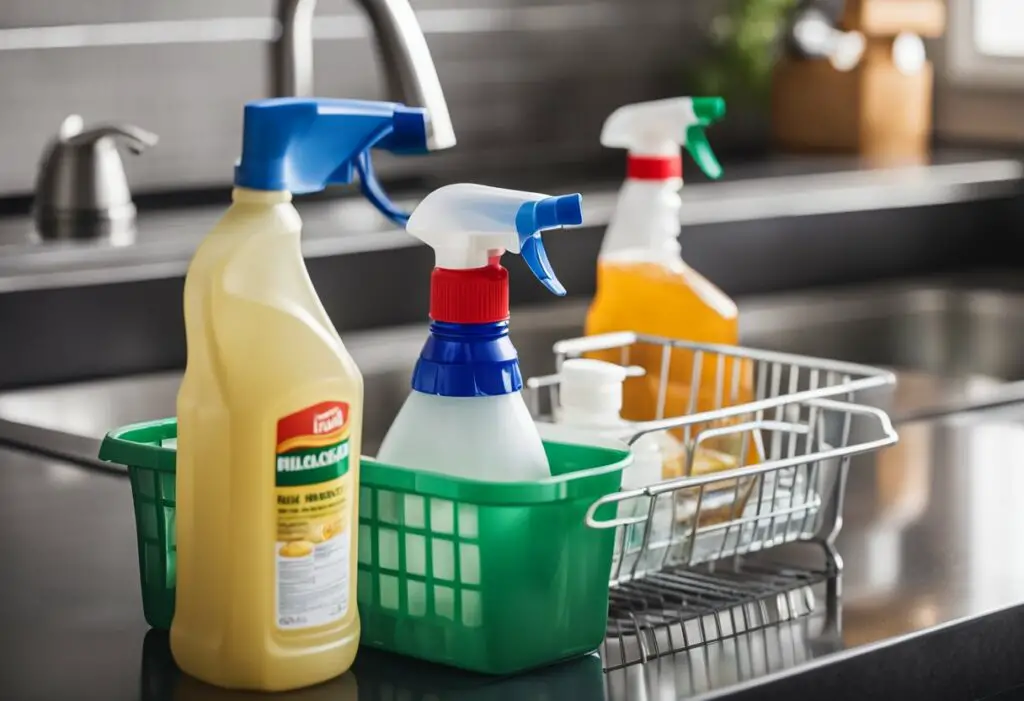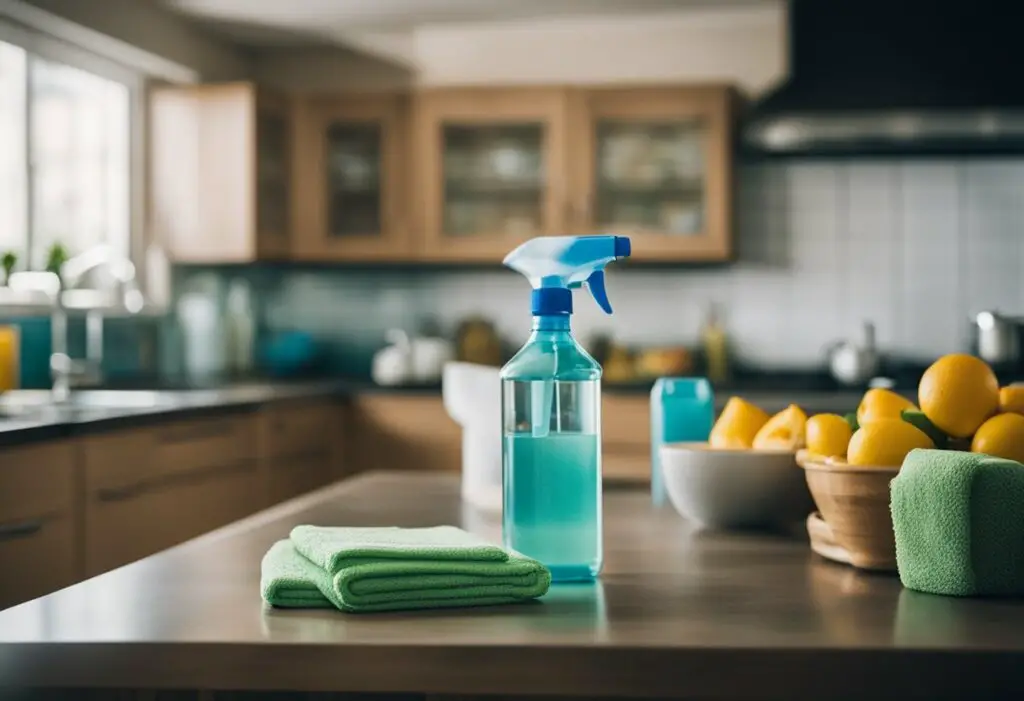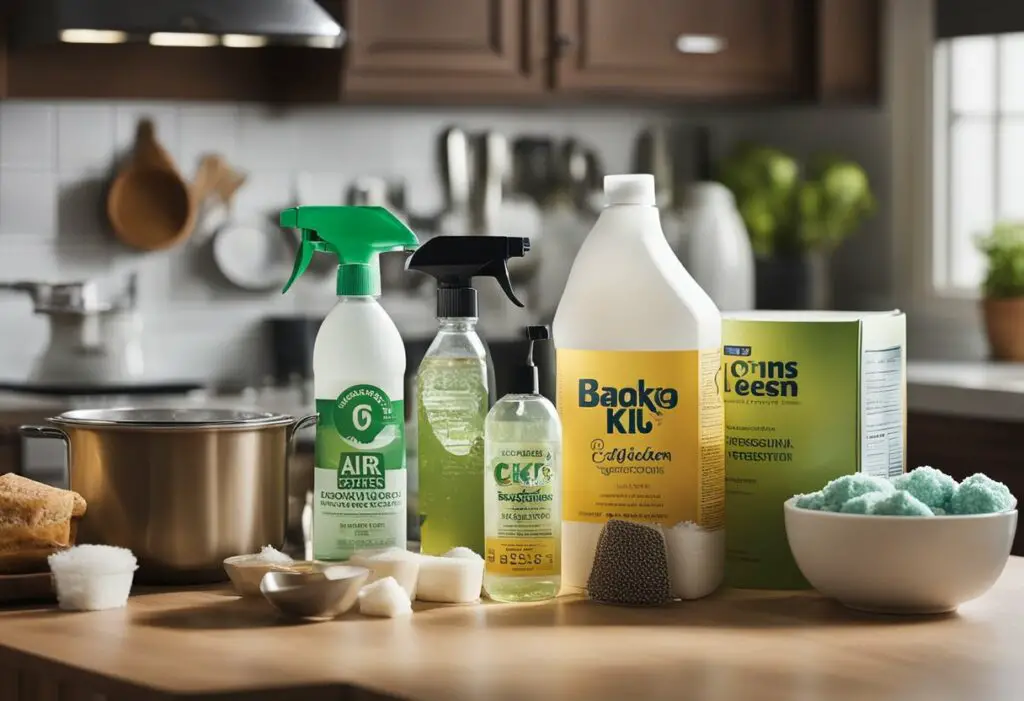Household odors can be unpleasant and even concerning at times. Certain smells can indicate a problem with air quality or the presence of potentially harmful chemicals. Understanding the causes of common household chemical odors can help you identify and address the source of the smell.

One of the most common sources of household odors is chemicals found in everyday products. Cleaning products, air fresheners, and pesticides can all emit strong odors that can linger in your home. Additionally, certain building materials, such as carpeting and paint, can also release chemicals that contribute to household odors.
Poor air quality can also contribute to unpleasant household odors. Mold and mildew growth, cigarette smoke, and pet dander can all affect the air quality in your home and lead to musty or unpleasant smells. It’s important to address these sources of poor air quality to improve the overall health and comfort of your home.
Identifying Common Household Odors
When it comes to identifying common household odors, it is important to pay attention to the specific scent to determine the cause. Here are some of the most common household odors and what they may indicate:
Musty and Moldy Smells
If you notice a musty or moldy smell in your home, it could be a sign of mold or mildew growth. These fungi thrive in moist environments and can be found in areas such as bathrooms, basements, and kitchens. Mold and mildew can cause health problems, including allergies and respiratory issues, so it is important to address the issue promptly.
Pet-Related Odors
Pets can be a great addition to any household, but they can also bring with them some unpleasant odors. Pet-related odors can come from pet urine, feces, and dander. These odors can be difficult to remove and may require professional cleaning services. Regular cleaning and odor-eliminating products can also help to keep pet odors at bay.
Garbage and Decomposition Scents
Garbage and decomposition scents can be some of the most unpleasant household odors. These scents can come from rotting food, spoiled milk, and other organic matter. It is important to dispose of garbage regularly and keep food storage areas clean to prevent these odors from developing.
By paying attention to the specific scent of household odors, you can identify the cause and take steps to eliminate them. Regular cleaning and maintenance can help to prevent many common household odors from developing in the first place.
Chemical and Product-Related Odors
When it comes to household odors, one of the most common culprits is chemical and product-related odors. These odors are often caused by the release of volatile organic compounds (VOCs) into the air. VOCs are chemicals that vaporize at room temperature and can be found in a wide range of household products, including cleaning supplies, air fresheners, and furniture.
Cleaning Products and Air Fresheners
Cleaning products and air fresheners are some of the most common sources of chemical and product-related odors in the home. Many of these products contain VOCs such as formaldehyde, which can cause a range of health problems if inhaled in large quantities. Some air fresheners, such as Febreze, contain chemicals that can react with other compounds in the air to produce dangerous pollutants.
To reduce the risk of chemical and product-related odors in your home, it’s important to choose cleaning products and air fresheners that are free from VOCs and other harmful chemicals. Look for products that are labeled as “low VOC” or “VOC-free,” and avoid using air fresheners that contain synthetic fragrances.
Furniture and Upholstery Off-Gassing
Another common source of chemical and product-related odors in the home is off-gassing from furniture and upholstery. Many furniture and upholstery products are treated with chemicals that can release VOCs into the air over time. These chemicals can cause a range of health problems, including headaches, dizziness, and respiratory issues.
To reduce the risk of off-gassing from furniture and upholstery, it’s important to choose products that are made from natural materials and are free from harmful chemicals. Look for furniture and upholstery that are labeled as “low VOC” or “VOC-free,” and avoid products that are treated with formaldehyde or other harmful chemicals.
Moisture and Biological Sources

If you notice sour or musty smells in your home, it’s possible that you have a moisture or mold problem. Moisture can come from a variety of sources, including bathroom and plumbing issues, as well as laundry and damp clothing.
Bathroom and Plumbing Issues
Bathrooms are a common source of moisture in the home. If you have a leaky faucet or showerhead, or if your bathroom isn’t properly ventilated, you may notice a musty smell. In addition, bacteria can grow in the pipes and cause unpleasant odors.
To prevent bathroom odors, make sure to fix any leaks and keep your bathroom well-ventilated. You can also use a dehumidifier to reduce moisture levels.
Laundry and Damp Clothing
Laundry and damp clothing can also contribute to sour or musty smells in the home. If you leave wet clothes in the washing machine for too long, or if you don’t dry your clothes completely, they can develop a musty smell. In addition, if you have a mold problem in your home, your clothes may absorb the odor.
To prevent laundry-related odors, make sure to dry your clothes completely and remove them promptly from the washing machine. You can also use a fabric softener or dryer sheet to add a fresh scent to your clothes.
Appliance and Electrical Odors

If you’re noticing strange smells in your home, it’s important to identify the source of the odor. Appliance and electrical odors are common causes of unpleasant smells in the home. In this section, we’ll explore the most common sources of these odors and what you can do to fix them.
Kitchen Appliances
The kitchen is often the source of many household odors. Dishwashers and garbage disposals are two common culprits when it comes to appliance odors. If your dishwasher smells like burning or has a musty odor, it could be due to food debris or mold buildup. Similarly, a garbage disposal that smells like rotting food could be due to food particles stuck in the blades. To fix these issues, run your dishwasher on the hottest setting with a cup of white vinegar, and clean your garbage disposal with a mixture of baking soda and vinegar.
HVAC and Electrical Systems
Your home’s HVAC and electrical systems can also be sources of unpleasant odors. If you smell natural gas in your home, it could be due to a gas leak. If you suspect a gas leak, turn off your gas supply and call your utility company immediately. Burning smells coming from your electrical components could indicate an overheating issue. If you notice any discoloration or melting around your outlets or switches, turn off the power to that area and call an electrician.
Solutions for Eliminating Household Odors

There are several natural remedies and professional services that can help you get rid of common household chemical odors.
Natural Remedies and DIY Solutions
One of the most effective natural remedies for eliminating household odors is baking soda. You can sprinkle baking soda on carpets, upholstery, and other surfaces, let it sit for a few hours, and then vacuum it up. Baking soda is a great odor absorber and can help neutralize unpleasant smells.
Another natural remedy is lemon. You can cut a lemon in half and place it in a bowl of water, then heat it in the microwave for a few minutes. The steam from the lemon water can help eliminate odors in the air.
Vinegar is another effective natural remedy for eliminating household odors. You can mix equal parts vinegar and water in a spray bottle and use it to clean surfaces, carpets, and upholstery. Vinegar can help neutralize unpleasant smells and is safe to use on most surfaces.
Professional Services and Products
If natural remedies don’t work, you may want to consider professional services and products. Experts recommend using an air purifier to eliminate airborne odors. An air purifier can help remove pollutants and allergens from the air, including household odors.
There are also professional odor removal services that can help eliminate stubborn odors. These services use specialized equipment and techniques to remove odors from carpets, upholstery, and other surfaces.
In conclusion, there are several natural remedies and professional services that can help you eliminate common household chemical odors. Whether you choose to use baking soda, vinegar, an air purifier, or a professional odor removal service, you can breathe easy knowing that your home is free of unpleasant smells.

